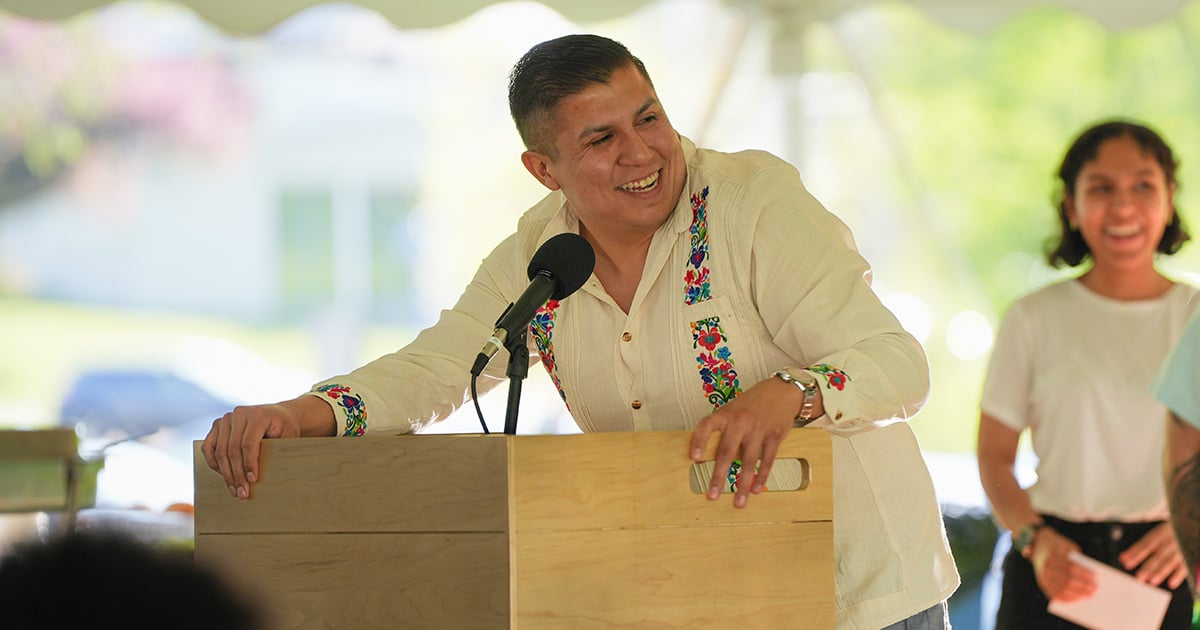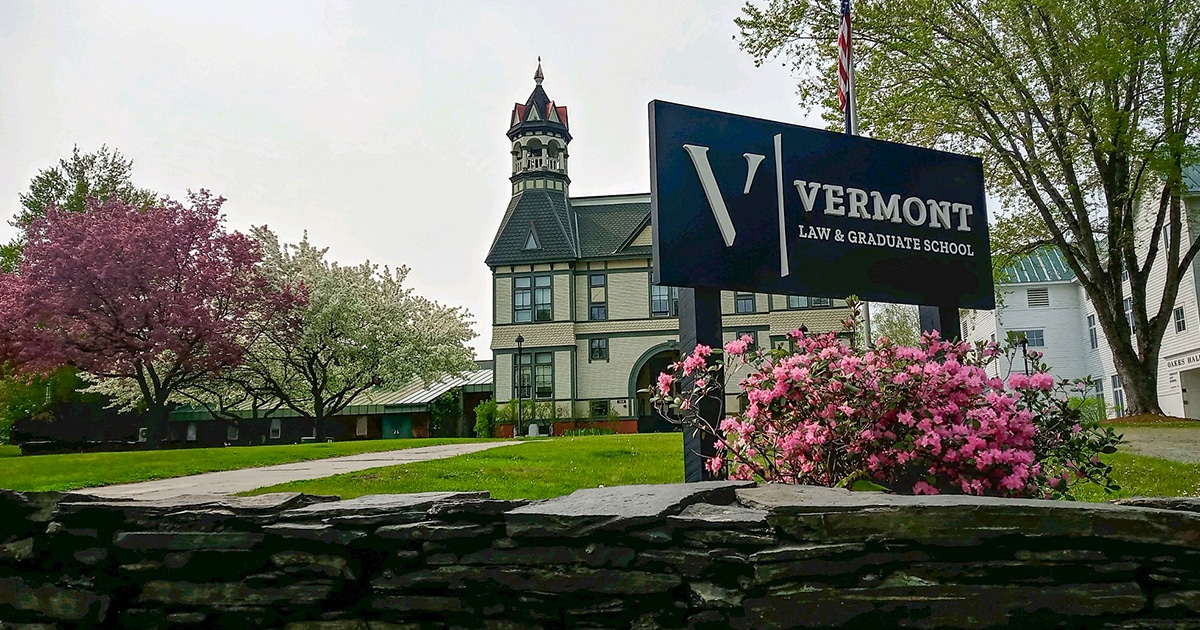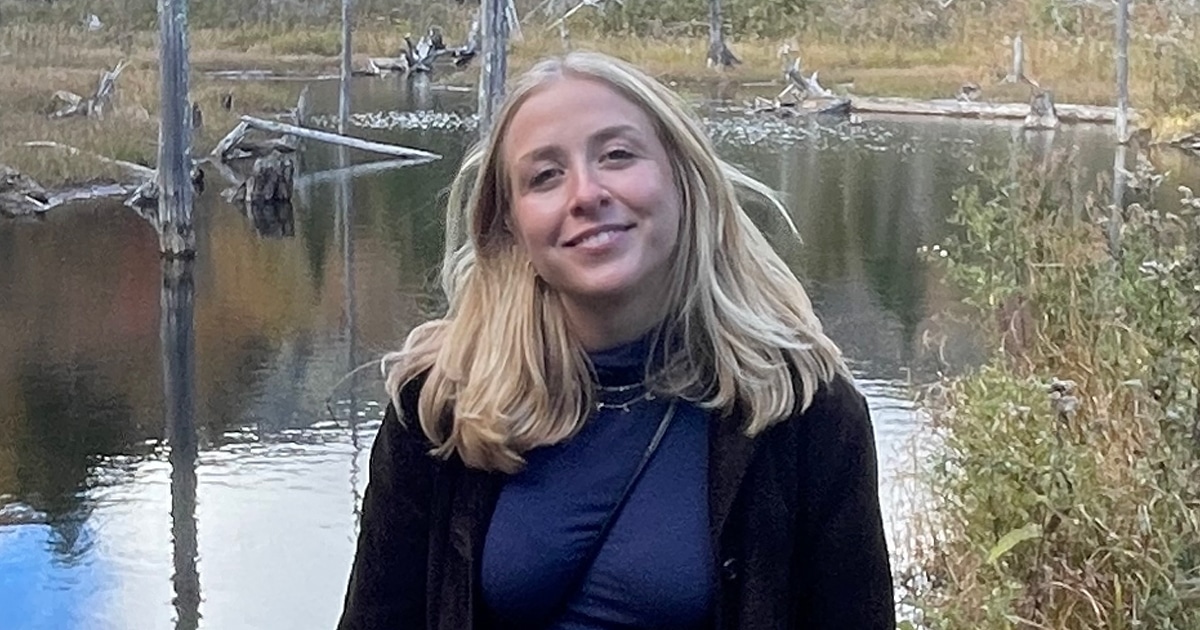
U.S.-Asia Partnerships for Environmental Law
Overview
The U.S.-Asia Partnerships for Environmental Law works collaboratively with government institutions, non-government organizations, lawyers, judges, lawmakers, and others to promote good environmental governance in Asia. As the most rapidly developing region on the planet, many countries in Asia are in urgent need of leaders to implement and enforce environmental laws and regulations, as well as policymakers and educators to develop the next generation of environmental advocates.
The U.S.-Asia Partnerships for Environmental Law was originally founded in 2006 under the name U.S.-China Partnership for Environmental Law. At its inception, the program was focused on furthering the work of governmental and private organizations within China that address critical environmental and energy challenges, improve policy, laws and regulations, as well as develop sustainable best practices in environmental protection and energy regulation.
Although much progress with regard to environmental protection has occurred since that time, many enormous challenges remain. We therefore continue to work with our partners in China to enhance public participation in environmental decision-making and educate various stakeholders through advocacy, policy reform, research, capacity building, and student opportunities. Over the years it became apparent that the environmental challenges faced by China were concurrent and interrelated throughout the region, and so we have expanded the geographic focus of our programs to include more countries within Asia.
In 2013, we initiated our Myanmar Environmental Governance Program, which essentially aims to build on the successful model we developed in China and apply it in Myanmar. More recently, the U.S.-Asia Partnerships for Environmental Law embarked on a project working with government entities, NGOs, and environmental lawyers from both China and countries in the lower Mekong Sub-region (Myanmar, Lao PDR, Cambodia, and Vietnam) to explore ways to sustainably manage the environmental and the social impacts of rapidly increasing Chinese overseas investment in the region.
Environmental issues in Asia remain immense, but we look forward to continuing to work with our partners to confront the challenges that lie ahead.
Message From The Director of U.S.-Asia Partnerships for Environmental Law
Vermont Law and Graduate School’s U.S.-Asia Partnerships for Environmental Law seeks to build capacity in China and throughout Asia for individual and institutional action to solve environmental and energy problems, as well as generate scholarship and research on Chinese and global environmental policy and provide academic programming and educational exchanges for both Chinese and American students and faculty.
The Asia Partnership has been fortunate to work with organizations and academic institutions in both the United States and China, including the China Environment Forum at the Woodrow Wilson International Center for Scholars in Washington, DC, the Center for Legal Assistance to Pollution Victims at the China University of Political Science and Law in Beijing, and Sun Yat-sen University Law School in Guangzhou.
Vermont Law and Graduate School faculty and our partners have trained over one thousand individuals in environmental and energy law, initiated an exchange program for a group of young environmental professionals focusing on environmental justice and climate change issues, and facilitated joint research projects among American and Chinese law students. VLS faculty have presented on environmental and natural resources law, global climate policy, energy law, and U.S.-China relations at universities, public interest organizations, government institutions, and conferences throughout China. Vermont Law School has hosted a number of Chinese law scholars and students on campus, as well as symposia on environmental challenges in China and China’s environmental governance.
These developments represent exciting opportunities for us to continue and expand the partnership’s work in building China’s capacity to solve environmental and natural resource problems. Over the past several years, we have found an enormous amount of dedication by our partners and many others to improving environmental quality and justice. Their efforts are in many instances pioneering and commendable. As environmental challenges such as climate change grow in urgency and the role of China in solving these problems becomes more important, the China Partnership endeavors to engage individuals and institutions in improving global environmental law and policy.
Siu Tip Lam
U.S.-Asia Partnerships for Environmental Law
Vermont Law and Graduate School
U.S.-Asia Partnerships for Environmental Law Program Partners
Partnerships are important to us. PEL excels at linking experienced professionals and academics in the US with Chinese universities in order to facilitate collaborative curriculum development and faculty and student exchanges that generate scholarship and research on environmental policy issues in China and Southeast Asia. We manage agreements with 16 partnering universities across China through which we facilitate project work and academic exchanges and we have hosted over one hundred institutional delegations and faculty and student exchanges through these agreements. Our current partnering universities include:
- Changsha University of Science and Technology
- China National Prosecutors College
- China University of Political Science and Law
- Fudan University
- Guiyang College
- Kunming University of Science and Technology
- Minzu University
- Ningbo University
- Renmin University
- Shanghai University of Political Science and Law
- Shanghai University of Finance and Economics
- Southwest University of Political Science and Law
- Southwest Forestry University
- Sun Yat-sen University
- Wuhan University
- Yunnan University
PEL also partners closely with the following organizations and institutions:
Center for Legal Assistance to Pollution Victims at the China University of Political Science and Law
The Partnership works closely with the Center for Legal Assistance to Pollution Victims (CLAPV) at the China University of Political Science and Law (CUPL) to engage in training of legal professionals in environmental law and strengthening China’s environmental governance system. Law professor and lawyer Canfa Wang founded CLAPV in 1998 at CUPL; one of the country’s top law schools. The center is officially registered as a civil society organization that operates an environmental legal clinic. CLAPV was influential in pioneering environmental litigation in China. Since its inception, the Center has directly assisted pollution victims in over 210 cases. CLAPV continues to influence China’s blossoming environmental NGO movement and build the capacity of China’s legal system.
The Environmental and Biodiversity Law Clinic at the Southwest Forestry University (SWFU)
In 2012, PEL collaborated with SWFU to launch the Environmental and Biodiversity Law Clinic (EBLC). Since its establishment, the EBLC has provided technical legal services to organizations and individuals across southwest China including NGOs, communities, and underserved and vulnerable citizens seeking to undertake legal action to protect the environment and their natural heritage.
The Southwest Forestry University (SWFU) is affiliated with China’s State Forestry Administration and is under the primary supervision of the Yunnan’s provincial government. It has a law department that offers an undergraduate degree in law (LL.B degree) and, along with the School of Environmental Science and Engineering, offers a master of laws degree (LL.M) in ecology law. The university has received several awards for its green initiatives.
As the only forestry university in Western China, especially in a region rich in biodiversity, SWFU has the necessary capacity to serve as a resource for advocates as well as government agencies and has potential to influence the development of a legal ecosystem to address the environmental governance and rule of law issues in the region.
The China Environment Forum at the Woodrow Wilson International Center for Scholars
As an expansion of activities, the Partnership has engaged the China Environment Forum (CEF) at the Woodrow Wilson Center as an implementing partner. Since 1997, the CEF has implemented projects, workshops, and exchanges that bring together U.S., Chinese, and other Asian environmental policy experts to explore the most imperative environmental and sustainable development issues in China and to examine opportunities for business, governmental, and nongovernmental communities to collaboratively address these issues. With extensive networks of energy and environmental practitioners in the government, business, non-governmental organizations, and research sectors in the U.S. and China, the CEF will contribute important program support and outreach resources to the program at VLGS.
Opportunities
U.S.-Asia Academic Residencies
Chinese faculty, students, and legal professionals visit VLS to participate in research projects, classes, and other activities that advance the main objectives of the PEL program. These educational efforts teach Chinese individuals and institutions to become more effective problem solvers in the field of environmental and energy law and policy. Law faculty and legal professionals have the opportunity to participate in academic residencies of various lengths at VLS while Chinese law students have the opportunity to attend Summer Session classes at VLS.
Transnational Environmental Law Clinic
Faculty Exchanges
Academic residencies provide visiting scholars not only an opportunity to acquire substantive knowledge in various topics in American and international environmental law but also access to VLS’s extensive environmental legal studies collection, one of the most comprehensive and well-organized in the country. They are able to engage in substantive and in-depth discussions and exchanges with VLS’s environmental and energy faculty and other visiting environmental law experts. Furthermore, the opportunity to observe American law school pedagogical methods allows them to augment and improve their own law teaching skills. Finally, they are also able to network with other American environmental and energy law experts and Chinese officials visiting VLS. The opportunity to acquire such skills, experiences, and relationships will advance their environmental careers and support them in their future efforts to positively affect the underlying conditions of China’s environmental governance challenges.
Summer Students
During the summer months, VLGS hosts its Summer Session. This program offers 30-35 compressed environmental law courses every summer and allows Chinese exchange students and visiting scholars to take advantage of a wide range of environmental law offerings in a limited period of time.
J-1 Exchange Visitor Program
The U.S. Department of State has a long tradition of encouraging educational and cultural exchanges between the people of the United States and the people of other countries. The J Exchange Visitor category was developed to implement the Mutual Educational and Cultural Exchange Act (Fulbright-Hayes Act) of 1961 and is now part of SEVIS (Student and Exchange Visitor Information System). The regulations governing J-1 scholars are complex, and only a brief summary is offered here. For specific questions, please contact the Office of Admissions. Sponsoring departments are responsible for assisting visiting scholars with finding housing, mentorship, and office space.
Vermont Law and Graduate School is designated to host the following categories of J-1 Exchange Visitors: Students, Professors, Short-Term Scholars, Research Scholars, and Specialists.
Program Details
Students
Requires admission to Vermont Law and Graduate School, enrollment in full-time study, and payment of tuition and fees. Limited to the amount of time needed to complete the program of study, with reasonable extensions allowed.
Research Scholar
The exchange of research scholars promotes the exchange of ideas, research, mutual enrichment and linkages between research and academic institutions in the United States and foreign countries.
Short-Term Scholar
A professor, research scholar, specialist, or a person with similar education or accomplishments (including students enrolled at foreign universities) coming to the U.S. on a short-term basis for the purpose of lecturing, observing, consulting, training, or demonstrating special skills. The maximum duration of stay is 6 months (no extension permitted).
Professor
An individual primarily teaching, lecturing, observing, or consulting (may also conduct research). May be hired in a temporary visiting faculty position or as an adjunct but may not be hired in a tenure-track position. Extension of the program is allowed up to five years (minimum participation period: three weeks). Professors who complete their programs, no matter the duration, are not eligible to return to the U.S. in a Research Scholar or Professor category for two years.
Specialist
An individual who is an expert in a field of specialized knowledge or skills who enters the United States for the purpose of observing, consulting, or demonstrating special knowledge or skills. The maximum duration of stay is 12 months and are not eligible for a permanent position.
English Language Proficiency
Visitors must possess English language proficiency. Sponsors are required to use one of the following objective measurements to determine an applicant’s language proficiency:
- A recognized English language test
- Signed documentation from an academic institution or English language school
- A documented interview conducted by the sponsor either in person or by video, or by telephone if video is not a viable option
This evidence must be submitted with the DS-2019 request form, as the Department of State requires this information be made available upon their request.
Fees
- J-1 visiting scholars will pay a Vermont Law and Graduate School one-time program fee of $1,500. An additional semester fee of $2,500 is assessed to non-tuition-paying designations for each semester they are on campus. Partial waiver of fees may be available to eligible scholars.
J-1 Scholars should be prepared to pay these fees upon their arrival to the Vermont Law and Graduate School. These fees must be paid by credit card, no cash or checks will be accepted.
Orientation
Upon your arrival, you must contact Katie Merrill to check in and complete an Arrival Form. Please note that under Department of State regulations, failure to check in within 30 days of arrival will result in the cancellation of your exchange visitor status and may subject you to deportation.
Bring these items when you check-in:
- Passport, with visa;
- Print out of I-94 card (Arrival/Departure Record). To do this, go to www.cbp.gov/I94.
- Form DS-2019
Health Insurance
The United States Department of State requires all J-1 visa holders and any accompanying dependents to obtain health and accident insurance, which includes the following minimum coverage:
- Medical benefits of at least $100,000 per person per accident or illness;
- repatriation of remains in the amount of $25,000; and
- expenses associated with medical evacuation in the amount of $50,000.
U.S.-Asia Partnerships for Environmental Law News and Events

Faculty and Staff in the News – May 2025
June 16Below is a selection of recent news highlights featuring members of Vermont Law and Graduate School’s faculty and staff. Local Food Requires Local Farms–Which Requ…

Isaiah Gonzales JD’25 Recognized in The National Jurist’s Law Students of the Year
May 12The National Jurist recently announced its 2025 Law Students of the Year. This esteemed list, which showcases individuals driving meaningful change in their communities and th…

Faculty and Staff in the News – April 2025
May 5Below is a selection of recent news highlights featuring members of Vermont Law and Graduate School’s faculty and staff. Pennsylvania Egg Brand Agrees to Drop Deceptive …

A Student Attorney’s Reflections on What It Means to Be a Community Advocate
May 2By: Charlotte Bieri JD/MELP’25 Before law school, I had a very different idea of the type of lawyer I was going to be. I imagined a fulfilling career ahead of […]…
Who We Are
Siu Tip Lam
- Director, U.S.-Asia Partnerships for Environmental Law
- Professor of Law
Cheng Gong
- Adjunct Faculty
- Senior Research Fellow
Yanmei Lin
- Professor of Law
- Deputy Director, U.S.-Asia Partnerships for Environmental Law
Claire Andrews
- Program Coordinator
Newsletter Issues
- Fall 2020
- Spring 2019
- Winter 2018
- Winter 2015
- Winter 2014
- Fall 2012
- Fall 2011
- Summer/Fall 2009
- Winter 2009
- Summer 2008
- Winter 2008
Publications
Through the work of the U.S.-Asia Partnership, faculty and students of Vermont Law School and its partners conduct extensive research on practical approaches to strengthen environmental governance and rule of law in China and throughout Asia.
Past student and faculty research has been supported by the Lingnan Foundation, the Rockfeller Brothers Fund, and USAID, among others.
Below is a list of recent publications by PEL staff and partners.
“Forging Partnerships and Fostering Wisdom: Dynamics of an Environmental Public Interest Litigation Network in Advocating Sustainable Municipal Solid Waste Management in China” (with Natalie W. M. Wong), The Chinese Journal of Comparative Law, Vol. 10, Oxford University Press (2022).
“Overview of U.S. Wildlife Cases Litigated by DOJ;” “A Case Study on Wildlife Protection through Natural Resources Damages Claims;” two book chapters in a book on US-China Comparative Wildlife Environmental Public Interest Litigation (forthcoming 2021).
“Wildlife crime in China: Analysis of Legislation and Selected Court Cases,” LIN Yanmei and Carolyne Clermont, IUCN Environmental Law Centre Report (forthcoming 2021).
“Forging Partnerships and Fostering Wisdom: Dynamics of NGOs Using Environmental Public Interest Litigations in Advocating Sustainable Waste Management in China,” LIN Yanmei and Natalie Wong, Chinese Journal of Comparative Law, (forthcoming 2021).
“Practical Analysis on Ecological Environmental Damages Assessment System: A Case Study of Onondaga Lake’s Ecological Damages Assessment,” LIN Yanmei, ZHANG Wei and DAI Rong, Journal of Minzu University (Natural Science), 2020, 29(03).
LIN Yanmei and Natalie Wong, “Alternative Form of Environmental Contention in China: the Case of Zero Waste Alliance,” conference proceedings of Modes of activism under authoritarian governance regimes in the Asia-Pacific, Sydney, Australia, November 14–15, 2019.
LIN Yanmei, “Waterkeepers’ EPIL Actions to Restore Watershed Health,” Journal of Chinese Prosecutors, August 2019.
“Environmental Mission Scholars Program: Fostering Next Generation of Environmental Public Interest Law Practitioners” China’s Environmental Law Education and Innovation in Practical Training (June 2019)
William J. Schulte and Matthew H. Baird, Myanmar’s Nascent Environmental Governance System: Challenges and Opportunities, 33 Natural Resources & Environment 21, forthcoming Fall 2018.
“A Perfect Storm: How China’s Taizhou Case Marks the Beginning of a New Wave of Environmental Enforcement” (with Amy Pickering), Environmental Story around the World, the Proceedings of the IUCN Academy of Environmental Law 15th Colloquium (University of Cebu Philippines, Edward Elgar) (May 2020).
“China’s Waste Ban Exposes Missing Links in Recycling,” Vermont Journal of Environmental Law’s 2019 Top 10 Watch List, December 2018.
“Rules and Practices of Citizen Suits Settlement: Lesson from the United States”, Review of Public Interest Litigation in Environmental Protection, edited by Li Dun, Legal Press (November 2018).
“U.S-China Comparative Study on Environmental Public Interest Litigation Practices,” Journal of Social Governance, February 15, 2018
Article, “Comparative Study on U.S. China Environmental Public Interest Litigation Practice,” Journal of Social Governance in China, December 2017.
“Yunnan Chemical Factory Becomes Testing Ground for Citizen Lawsuits,” Chinadialogue.net, August 23, 2017.
Tuholske, Jack and Judge Sun Qian, “Explorations of and Reflections on China’s System of Environmental Public Interest Litigation,” published in the June edition of the Environmental Law Reporter, 47 ELR 10497.
LIN Yanmei Abstract, “A Perfect Storm: How the Taizhou Case Marks the Beginning of a New Wave of Environmental Enforcement in China” (with Amy Pickering), IUCN Academy of Environmental Law 15th Annual Colloquium (29 May – 2 June 2017).
LIN Yanmei , Ma Rongzhen, Ge Feng Where the Compensation Fund Comes from in the Environmental Public Interest Litigation? How to Manage the Fund? China Environment, Issue 2, 2017, February 20, 2017
LIN Yanmei “Environmental and Biodiversity Law Clinic at Southwest Forestry University: A New Environmental Law Clinic Model in China,” 18 Vt. J. Envtl. L. 19, (Winter 2016).
LIN Yanmei and Yin Hong “Digital Environment and Public Participation in China” (with Yin Hong), Southeast Academy Research 2016, No.254 (04) 95-100
LIN Yanmei, “International Perspectives: Citizen Suits in the U.S.,” in Environmental Public Interest Litigation Annual Observation Report in China, Li Dun, Legal Press, (December, 2016).
LIN Yanmei “International Perspectives: Citizen Suits in the U.S.”, Environmental Public Interest Litigation Annual Observation Report, Li Dun(eds.), Law Press, China (October, 2016)
“Environmental and Biodiversity Law Clinic at Southwest Forestry University: A New Environmental Law Clinic Model in China”, Vermont Journal of Environmental Law, October 2016.
“Environmental Civil Public Interest Litigation: Empowering Chinese Environmental NGOs to Fight against Pollution” (with Hu Shaobo), China Environmental Series 13, (2016)
LIN Yanmei, HU Shaobo, Environmental Civil Public Interest Litigation: Empowering Chinese Environmental NGOs to Fight against Pollution, China Environmental Series 13, March, 2016.
, Environmental Law Reporter, September, 2015
LIN Yanmei , An Analysis on the Implementation Effects of India’s Access and Benefit Sharing Regime on Biological Resources and Relevant Traditional Knowledge, Journal of Guizhou Normal University (Social Science), 2015, No.192(01) 98-103
LIN Yanmei, Comparative Study on Comprehensive and Centralized Jurisdiction Model of Specialized Environmental Courts and Tribunals, Journal of China University of Political Science and Law, Issue 1, 2015: 62-71
Schulte, William and Ashlee Stetser, On the Path to Sustainable Development: An Assessment of Cambodia’s Draft Environemtnal Impact Assessment Law, Cambodia Law and Policy Journal, Vol. 3, December 2014
William J. Schulte and Ashlee Stetser, On the Path to Sustainable Development: An Assessment of Cambodia’s Draft Environmental Impact Assessment Law, 3 Cambodia L. & Pol’y J. 97 (2014).
LIN Yanmei and CHENG Gong, India’s Legal Regime on Access to and Benefits Sharing of Genetic Resources and Traditional Knowledge, Journal of Guizhou Social Science, Issue 10, 2014: 87-91
“Public Participation Still Lacking from China’s Environmental Laws,” Chinadialogue.net, November 12, 2013.
LIN Yanmei and Jiaru Hou, Toxic Release Inventory: US Lessons and Experiences for China, Journal of Ocean University of China (Social Sciences Edition), Issue No. 1, 2014
LIN Yanmei, Case Analysis of Interfaith Community Organization, et al., v. Honeywell International, Inc., et al, Review of Public Interest Litigation In Environmental Protection, Li Dun, Legal Press, December, 2016, 361-365
LIN Yanmei, CHEN Yue, China’s New National Rules on Wetland Protection, IUCN Academy of Environmental Law E-Journal, Issue 5: 2014, 117
LIN Yanmei, Wang Xiaoxi, Environmental Public Interest Litigation Back to the Beginning in 2013, Annual Report on Environment Development of China (2014), Social Science Academic Press, May, 2014, 146, Brill Press 2015
Zhuang, Yu, Improving the Enforceability of the Genetically Modified Food Labeling Law in China with Lessons from the European Union, 14 VT. J. ENVTL. L. 465 (2013)
LIN Yanmei and Jack Tuholske, Green NGOs Win China’s First Environmental Public Interest Litigation: The Nanping Case, Environmental Law Reporter, December, 2016.
WANG Canfa, LIN Yanmei, Improve and Perfect China’s Government Environmental Information Disclosure System, Administration Reform, Issue 6: 2014, July, 2014
LIN Yanmei, Hudson River Keeper’s Environmental Public Interest Litigation, Review of Public Interest Litigation In Environmental Protection , Li Dun, Legal Press, December, 2016, 365-370
Tea Times with PEL
PEL invites the VLGS community to join us monthly for a group discussion over tea and treats on environmental governance issues in Asia. Topics vary depending on presenter interests. Contact PEL Program Coordinator if you would like to lead a discussion.
Past Presentations
- July 2018 – Douglas Whitehead (PEL Fellow; MELP ’20) – Elephant Ivory Trade Regulation
- June 2018 – Gianna Petito (PEL Program and Development Officer) – Chinese Electric Industry Structure and Function for Greening the Grid
- April 2018 – This month we had a round-robin of presentations on student papers from Professor Lin’s course Comparative Environmental Law Research Seminar. In order of appearance:
- Amanda Carrington (JD ’19) – Renewable Energy Regulations and the Friends of Nature v. Gansu Electric Power Grid
- Nicole Webbert (JD ’19) – Marine Protected Areas in California and China
- Marcelo Dias (LLM ’18) – Forest Law and Governance in Brazil and China
- March 2018 – Xiaoyu Zhang (PEL Assistant Director) – Environmental Public Interest Litigation in China
- February 2018 – Jack Tuholske (PEL Faculty Advisor) – Opportunities in China
- January 2018 – Gabriela McMurtry (JD ’20) – Sustainable Fisheries*
- Please note this was our first attempt at filming the presentations and learned the videos within the presentation have no sound. If you’d like to review those videos here are the links:
- December 2017 – Brian Nguyen (JD ’20) – Asian Voter Representation
- November 2017 – Renee Val Fajardo (JD/MELP ’18) – Bayanihan



